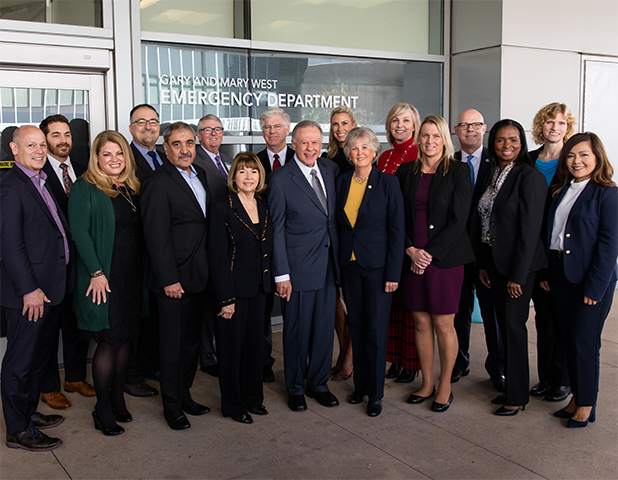NEW MILESTONE – Number of Accredited Geriatric Emergency Departments Surpasses 500, Elevating Care for Older Adults
In 2018, the American College of Emergency Physicians (ACEP) established the Geriatric Emergency Department Accreditation Program in response to growing evidence that emergency departments needed to do more specifically for older adults and not take a one-size-fits-all approach to care.

Six years later, more than 500 geriatric emergency departments (GED) have earned accreditation spreading across 21 international sites,six countries, and 47 states. Now, about 16.2 million Americans aged 65 and older, or nearly 30% of older adults in the U.S., have access to emergency care that’s more tailored and responsive to their needs. West Health and The John A. Hartford Foundation provided financial support and foundational work for the accreditation program and remain involved in expanding its reach and best practices.
Data continues to mount that GEDs can help improve patient outcomes and reduce hospital admissions and repeat trips to the emergency room. GEDs treat older adults for everything from accidental falls, dehydration, and heart problems to issues related to drug interactions, fragility, and cognitive decline. Many GEDs also create a physical environment with softer lighting, more comfortable and accessible furniture and more space for caregivers.
GED staff includes physicians, nurses, pharmacists, physical therapists, and social workers all trained in geriatric conditions. In addition to acute care, they pay careful attention to discharges and transitions to home and can reach into the community as needed to connect patients with support services and programs such as those provided by the government, nonprofits, and other local groups and individuals.
“This milestone is a testament to the collective dedication of our partners, the providers and staff across all GEDs,” Shelley Lyford, CEO and Chair of West Health Institute, remarks.
While surpassing 500 accredited GEDs is a significant milestone, here in the U.S. more than two-thirds of seniors still do not have access to one in their communities, a situation that may only worsen with the aging of America. According to the U.S. Census Bureau, within the next decade older adults will rise to about 20% of the population (74 million people) and will outnumber children for the first time in U.S. history.

Last year, West Health and UC San Diego Health, the region’s only academic medical center, expanded their longstanding partnership with a sweeping initiative to provide training and leadership support to emergency departments so even more may become accredited. California currently leads the nation with 94 GEDs including the Gary and Mary West Emergency Department at UC San Diego Health, which became the first accredited GED in the state in 2019.
Seniors are more likely than any other age group to make a visit to the emergency room. About 20% of all emergency department visits (29 million) are made by patients 60 and older. The majority of the hospital admissions from the ED (46%) are older adults who account for 60% of avoidable hospital admissions. These are trends that can be slowed or reversed with GEDs and given their growth, more and more hospitals and patients recognize that.
